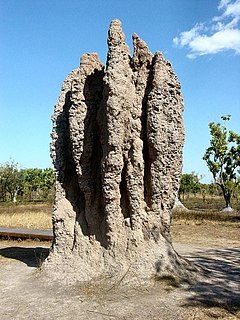

In philosophy, systems theory, science, and art, emergence occurs when an entity is observed to have properties its parts do not have on their own. These properties or behaviors emerge only when the parts interact in a wider whole. For example, smooth forward motion emerges when a bicycle and its rider interoperate, but neither part can produce the behavior on their own.
Emergence plays a central role in theories of integrative levels and of complex systems. For instance, the phenomenon of life as studied in biology is an emergent property of chemistry, and psychological phenomena emerge from the neurobiological phenomena of living things.
In philosophy, theories that emphasize emergent properties have been called emergentism. Almost all accounts of emergentism include a form of epistemic or ontological irreducibility to the lower levels.







